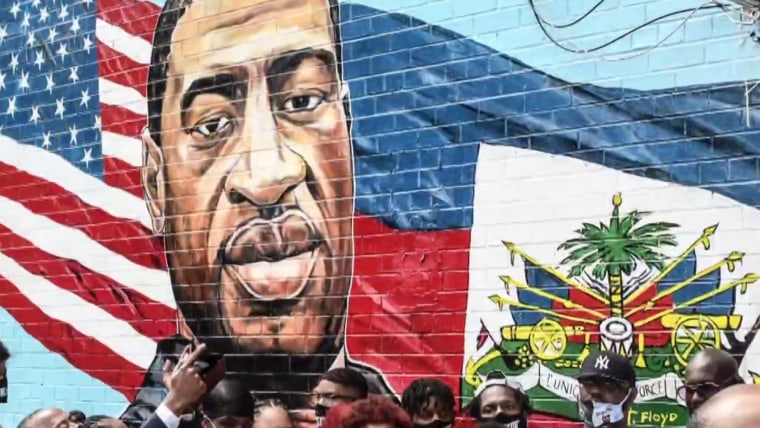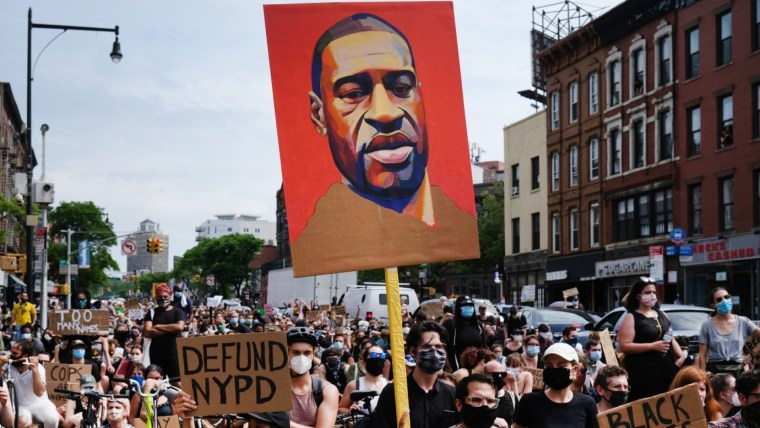Five years ago, the world watched a video of a man, whose neck was pressed under the knee of a Minneapolis police officer, begging for his life. “I can’t breathe,” George Floyd said. Over and over. Twenty-seven times. Until he was choked to death.
George Floyd was a father. A friend. A human. And his life mattered.
His murder was a tragedy. But it also revealed a truth. A truth that, for too long, too many in this nation have chosen to ignore: Police brutality against Black people is real, and it is systemic.
Police brutality against Black people is real, and it is systemic.
But the system that murdered George Floyd wasn’t broken. American policing continues to embrace racial profiling, gives officers latitude to be aggressive and generally shields them from liability. The system was built this way — and President Donald Trump is standing in the way of justice and accountability.
Trump’s Department of Justice announced Wednesday that it is abandoning efforts to hold the police department in Minneapolis accountable for routinely violating Black people’s civil rights. It’s also abandoning a similar effort in Louisville, Kentucky, where police shot and killed Breonna Taylor. The Justice Department also announced that it would terminate investigations and retract findings of wrongdoing in police departments nationwide, in Tennessee, Arizona, New Jersey, New York, Oklahoma and Louisiana.
Five years later, it’s clear. Those in positions of power continue to stand in the way of any necessary reforms. It is a painful reality we must confront: What was promised after Floyd’s murder hasn’t been delivered.
When the horrifying video of Floyd’s murder went viral, the entire country stopped to notice. People protesting flooded the streets in all 50 states. Industry leaders in corporate boardrooms issued bold statements. Elected officials promised reforms. And for the first time in a long time, it seemed like change was not only possible but inevitable.
Some states and cities implemented important reforms, such as bans on chokeholds and no-knock warrants, greater transparency in use-of-force policies and new standards for body camera video. But the federal government has failed to deliver the systemic change this moment demands. According to The Washington Post, there were 1,175 police killings in the United States in 2024, the deadliest year on record.

The George Floyd Justice in Policing Act would help prevent abuses in policing — including those seen in the brutal murder of Tyre Nichols — but it remains stalled in Congress. This is an insult. A disgrace. And a betrayal of the promises made to Black people, Americans as a whole and the more than 10,000 people police killed in the last decade.
Even worse, the very data needed to hold law enforcement accountable has been buried. The Trump administration shut down the National Law Enforcement Accountability Database, which compiled police misconduct data and was created to bring transparency to abusive policing. That data was meant to shine a light on patterns of violence and ensure that bad-acting officers couldn’t simply resign in one jurisdiction and be rehired in another. Without it, police officers can go back to shirking responsibility for their actions. That’s not reform — that’s regression.
According to The Washington Post, there were 1,175 police killings in the United States in 2024, the deadliest year on record.
Accountability cannot be optional. And that accountability starts with ending qualified immunity.
Right now, when officers abuse their power, taxpayers — not the officers or their unions — foot the bill for civil judgments. Our communities pay twice: first in trauma, then in money. That must end. Public servants shouldn’t be shielded from public consequences when they violate public trust.
Crossing the five-year mark on May 25 without any action is a disgrace and is likely to leave a lasting stain on our country. Passing the George Floyd Justice in Policing Act before May 25 would have been the only meaningful way to observe this anniversary.
Instead, May 25 is just be another day of failed American leadership and domestic policy.
But police reform is only the first step.

Protecting Black lives also means protecting Black futures — investing in the mental health of our youth, ensuring equitable access to quality education and closing the racial wealth gap that leaves entire communities behind. It means creating civic infrastructure that strengthens Black political power and prevents our voices from being diluted at the ballot box.
We need systemic protections, not symbolic gestures. We need policies that prevent injustice before it happens — not news conferences after the fact.
The NAACP will not rest until those protections are in place. We will continue to advocate for the George Floyd Justice in Policing Act. We will continue to demand a national registry of police misconduct and the end of qualified immunity. We will continue to press for federal oversight and enforcement that holds police accountable — not just in headlines, but in courtrooms and communities.

Because George Floyd should be alive. Tyre Nichols should be alive. Breonna Taylor. Elijah McClain. The list goes on. Their deaths aren’t isolated incidents — they are symptoms of a deeper sickness.
Five years later, we don’t just remember George Floyd. We recommit ourselves to a simple but urgent truth: Black lives matter. In policy. In budgets. In schools and hospitals and on the streets where our children play.
We don’t need more promises. We need protection. We need power. And we need justice.
Now.

